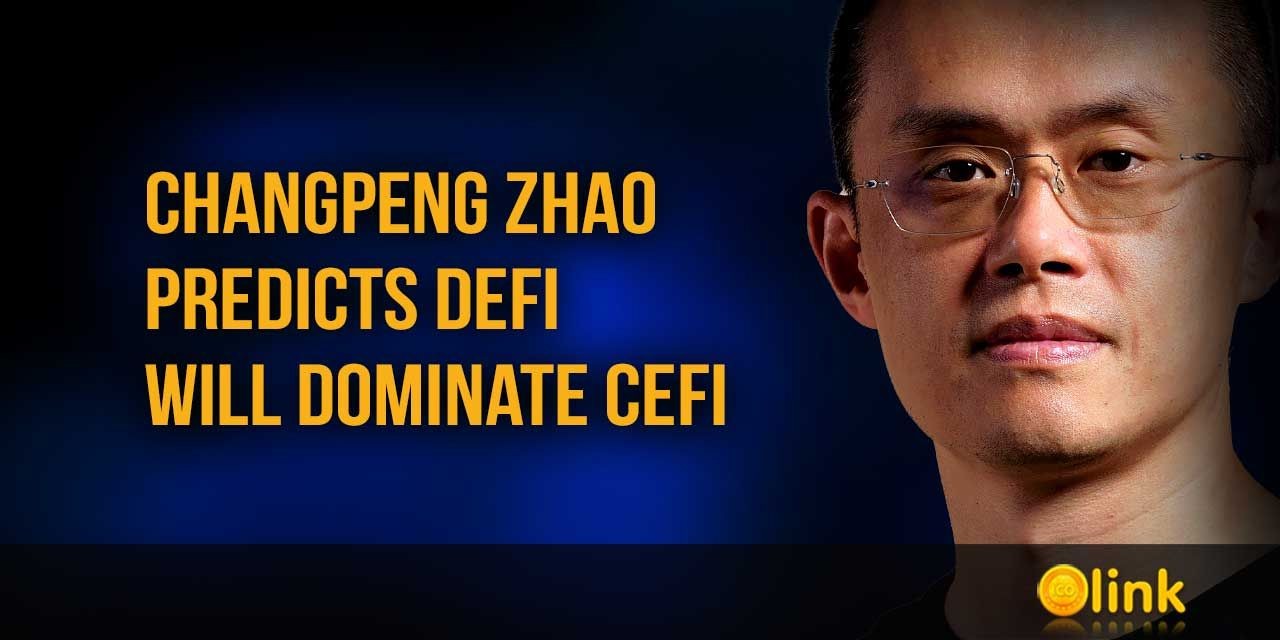Changpeng Zhao Predicts DeFi Will Dominate CeFi
Decoding the Future of Finance: Why Changpeng Zhao Believes DeFi Will Outshine CeFi
The financial landscape is undergoing a seismic shift, and at the epicenter of this transformation is the clash between Decentralized Finance (DeFi) and Centralized Finance (CeFi). Changpeng Zhao, the visionary CEO of Binance, is tipping the scales in favor of DeFi. But what gives him such confidence, and why should you pay attention? In this comprehensive article, we unpack Zhao's bold claims and delve into the analytics that are compelling large-scale investors and financial institutions to pivot towards decentralized finance.
"DeFi could soon eclipse CeFi," states Changpeng Zhao, in what seems like a bold prediction for the future of finance. The CEO of Binance, one of the world's leading crypto exchanges, isn't merely making an off-the-cuff remark. Zhao's assertion is fortified by some compelling advantages that DeFi platforms offer over traditional centralized finance systems.
Central to Zhao's enthusiasm for DeFi is its ability to offer a plethora of financial services like lending, borrowing, and asset trading without the need for intermediaries. Imagine conducting all your financial transactions without the hassle of third-party approvals, extensive paperwork, or exorbitant fees. In a world where time is money, DeFi offers an unprecedented level of efficiency.
Changpeng Zhao lays emphasis on two core attributes of DeFi systems—transparency and security. In a decentralized setup, every transaction is publicly recorded on the blockchain. This fosters an environment of trust, as the system operates transparently and is less susceptible to fraudulent activities.
Moreover, DeFi platforms have shown remarkable resilience against market volatility and strict regulatory scrutiny. Such robustness makes these platforms highly attractive to both retail investors and large financial entities.
Low transaction fees and competitive interest rates are other major draws of DeFi platforms. In the CeFi world, high fees are often a contentious issue, especially for small retail investors. DeFi, with its reduced operational costs, offers a more egalitarian financial playground.
While DeFi offers a bouquet of advantages, it's crucial to also address the vulnerabilities. According to July statistics from DeFillama, a leading analytics firm, hackers managed to pilfer a staggering $6.7 billion from DeFi protocols over the last year.
Given its increasing resilience and rising popularity, the DeFi market is showing signs of maturity. Retail investors are already cashing in on its benefits, and big financial players are commencing to view DeFi not merely as a disruptive force, but as a viable, long-term investment.
It's not just the everyday investor who is flocking to DeFi platforms. Financial giants are also taking keen interest, lured by the promise of high returns and operational efficiency. As more institutions integrate DeFi solutions, it's likely that this decentralized model will become the new norm, effectively "eclipsing" centralized finance systems as Zhao predicts.
Changpeng Zhao's prediction about the DeFi market overtaking its centralized counterpart isn't just another sensational headline; it's a well-argued viewpoint, corroborated by emerging data and trends. From the democratization of financial services to the high resilience against external threats, DeFi platforms are shaping up to be the future of finance.
While challenges like cybersecurity risks exist, they are not insurmountable. With advancements in blockchain technology and increased regulatory clarity, DeFi platforms are becoming more secure and reliable.
In the ever-evolving landscape of global finance, the words of visionaries like Changpeng Zhao often serve as signposts for future trends. If the advantages of DeFi continue to outpace those of traditional financial systems, Zhao's prediction may well become our reality. One thing is clear: The world of finance is changing, and DeFi seems poised to lead that change.






